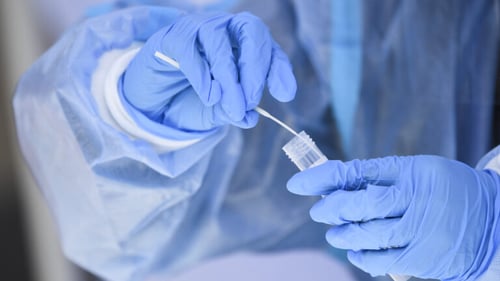

Lab Tests and Insurance: A Crucial Component of American Healthcare
Lab tests play a vital role in the American healthcare system, aiding in disease diagnosis, treatment, and prevention.These tests provide valuable insights into a patient's health status, enabling healthcare professionals to make informed decisions, with the CDC estimating that 70 percent of today’s medical decisions depend on laboratory results.
Thanks to the Affordable Care Act (ACA), most major medical insurance plans cover the cost of lab tests, ensuring access to necessary diagnostic services.
ACA: Lab Tests are One of 10 Essential Health Benefits
The ACA has a set of 10 categories of services health insurance plans must cover under the legislation since 2014, which includes lab tests:
- Ambulatory patient services (outpatient care you get without being admitted to a hospital)
- Emergency services
- Hospitalization (like surgery and overnight stays)
- Pregnancy, maternity, and newborn care (both before and after birth)
- Mental health and substance use disorder services, including behavioral health treatment (this includes counseling and psychotherapy)
- Prescription drugs
- Rehabilitative and habilitative services and devices (services and devices to help people with injuries, disabilities, or chronic conditions gain or recover mental and physical skills)
- Laboratory services
- Preventive and wellness services and chronic disease management
- Pediatric services, including oral and vision care (but adult dental and vision coverage aren’t essential health benefits)
“Therefore, almost all health plans will cover lab services that your doctor may order. Because these preventive care measures are covered in full, there won’t be a copayment or coinsurance,” writes Taylor Bianchini for Mira Healthcare. “This stands even if you haven’t met your yearly deductible. It is important to note that these lab services may only be free to you if ordered by a doctor or other healthcare professional in your plan’s provider network.”
It is always important to check with your healthcare provider first before seeking lab services, especially as recent court rulings could change insurance providers' ability to seek copayment.
“A federal judge in Texas said [March 30, 2023] that some Affordable Care Act mandates cannot be enforced nationwide, including those that require insurers to cover a wide array of preventive care services at no cost to the patient, including some cancer, heart, and STD screenings, and tobacco programs,” CNN reported.
The Significance of Lab Tests in American Healthcare
Lab tests serve as a crucial diagnostic tool, aiding in identifying and monitoring diseases. They provide objective and measurable data that assists healthcare professionals in making accurate diagnoses, formulating treatment plans, and evaluating interventions' effectiveness.
Lab tests encompass a wide range of examinations, including:
- Blood tests
- Urine tests
- Genetic tests
- Imaging studies, and more.
These tests help detect diseases early, monitor chronic conditions, and guide personalized treatment approaches, ultimately leading to improved patient outcomes.
Typical Lab Services Covered Under the ACA
There are some 14 billion laboratory tests ordered across the country at approximately 260,000 CLIA-certified laboratories.
“Strong clinical laboratories provide the foundation for accurate and timely disease diagnosis, prevention, and control to improve the health and safety of Americans,” says the CDC.
Mira Healthcare says that under the lab services benefit of the ACA, the following tests are included:
- Biopsies: Doctors take samples of tissue or unusual growths to test for potential health concerns.
- Blood and fluid tests: Blood, urine, sweat, and other fluids are commonly obtained for lab testing. This can be used to look for drug interactions, nutrient levels, or the presence of certain medical conditions.
- Pathology: Healthcare professionals use screenings such as throat or nose swabs to determine the presence of an illness.
- Pregnancy tests: If you get blood work completed to confirm pregnancy, your insurance will cover the cost.
- X-rays and diagnostic imaging: Expensive imaging tests, such as CT scans, MRIs, and X-rays are used to identify diseases or abnormalities in the body.
Different Lab Tests Insurance Covers for Adults, Women, Children
The ACA also mandates coverage for certain preventive lab tests, which aim to detect diseases at an early stage or identify risk factors.
While specific coverage may vary depending on the insurance plan, some common examples of preventive lab tests covered for different groups include:
Preventive Lab Tests for Adults:
- Cholesterol screening
- Blood pressure measurement
- Diabetes (Type 2) screening
- Colorectal cancer screening (ages 45 to 75)
- HIV screening
- Hepatitis C screening
- Hepatitis B screening (for adults at higher risk)
- Osteoporosis screening (for women)
- Prostate cancer screening (for men)
- Breast cancer screening (for women)
- Cervical cancer screening (for women)
- Abdominal aortic aneurysm one-time screening (for men of specified ages who have ever smoked)
- Alcohol misuse screening and counseling
- Sexually transmitted infection (STI) prevention counseling and syphilis screening (for adults at higher risk)
Preventive Lab Tests for Women:
- Pap smear (cervical cancer screening)
- Mammogram (breast cancer screening)
- Human papillomavirus (HPV) testing
- BRCA gene testing (for individuals at high risk of breast or ovarian cancer)
- Fertility testing
- Gestational diabetes screening (for women 24 weeks pregnant or later at high risk)
- Hepatitis B screening (pregnant women at first prenatal visit)
- Rh incompatibility screening (for all pregnant women)
- Urinary tract or other infection screening
Preventive Lab Tests for Children:
- Newborn screening including:
o bilirubin concentration screening
o blood screening
o Phenylketonuria (PKU) screening
- Lead screening
- Developmental screening
- Autism screening
- Blood tests for iron deficiency
- Dyslipidemia screening (all children once between ages 9 and 11 and once between 17 and 21, and for children at higher risk of lipid disorders)
Lab Tests Not Routinely Covered by Major Medical Insurance
While major medical insurance plans typically cover a broad range of lab tests, certain tests may not be routinely covered. The reasons for non-coverage can vary and may include:
- Experimental or Investigational Tests: Insurance may not cover tests that are still in the experimental phase or not widely accepted as a standard medical practice.
- Cosmetic or Non-Medically Necessary Tests: Procedures or tests primarily performed for cosmetic purposes, such as elective genetic testing or non-medically indicated screenings, may not be covered.
- Alternative or Complementary Medicine Tests: Tests associated with alternative or complementary medicine practices, such as certain naturopathic tests or unproven diagnostic methodologies, may not be covered.
- Non-Covered Conditions: Some insurance plans may exclude coverage for specific conditions or diseases, leading to non-coverage of related tests.
- Non-Recommended Tests: Tests that lack scientific evidence or medical guidelines supporting their routine use may not be covered.
Remember that even when a lab test is "covered" by insurance, it does not always mean "free" -- always check with your insurance plan and consult with your healthcare provider to understand which lab tests are fully covered with no copayment or co-insurance required and which tests and procedures will require some out-of-pocket expenditures.
Subscribe to email updates
Related Articles

Topics

Topics

Topics



